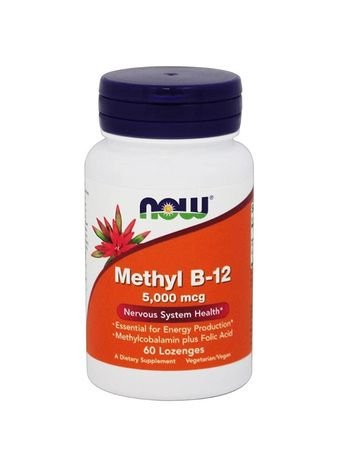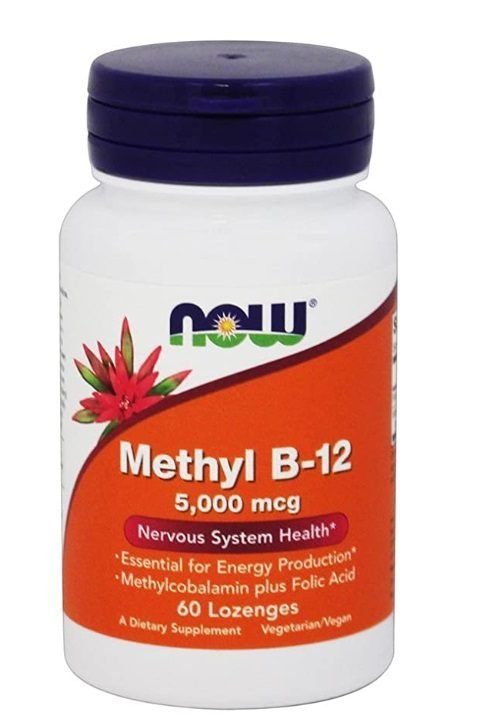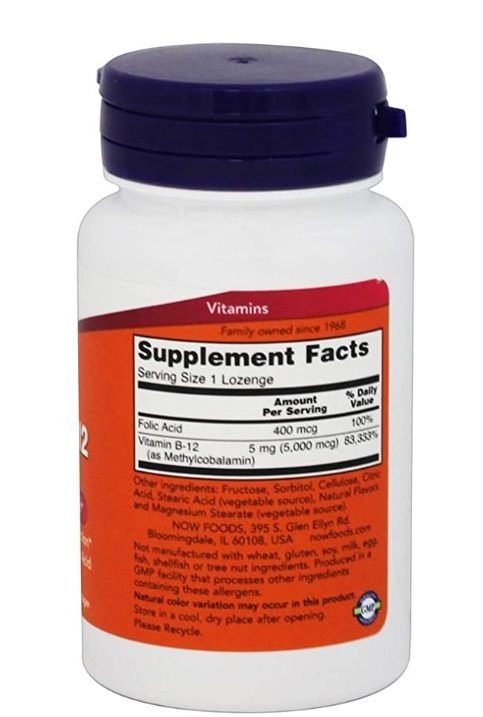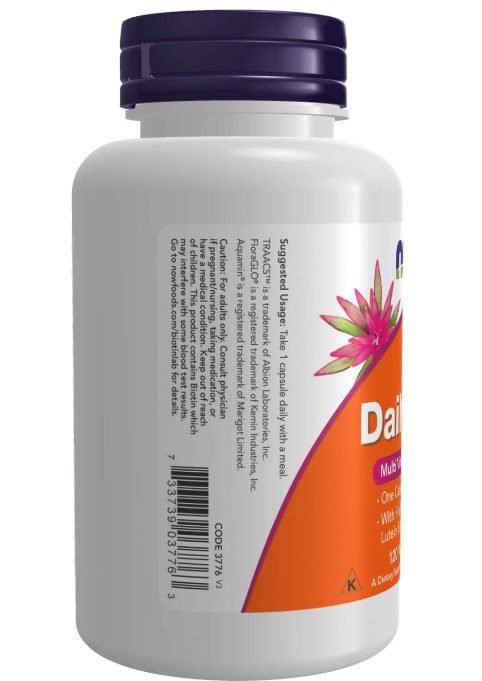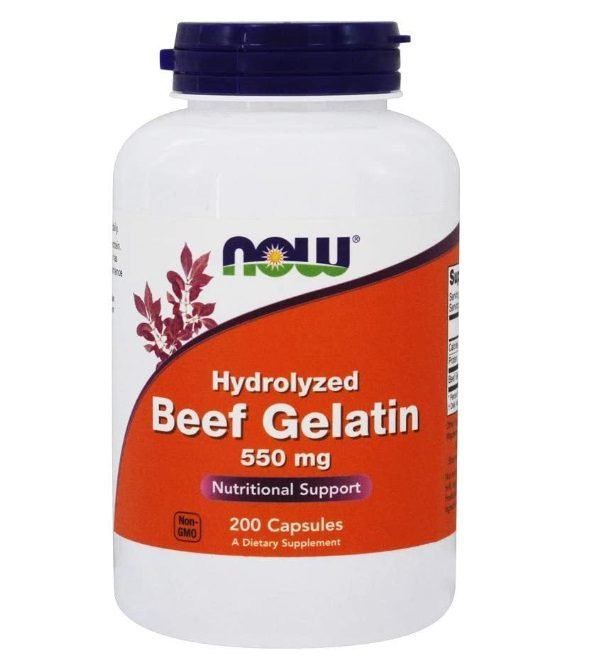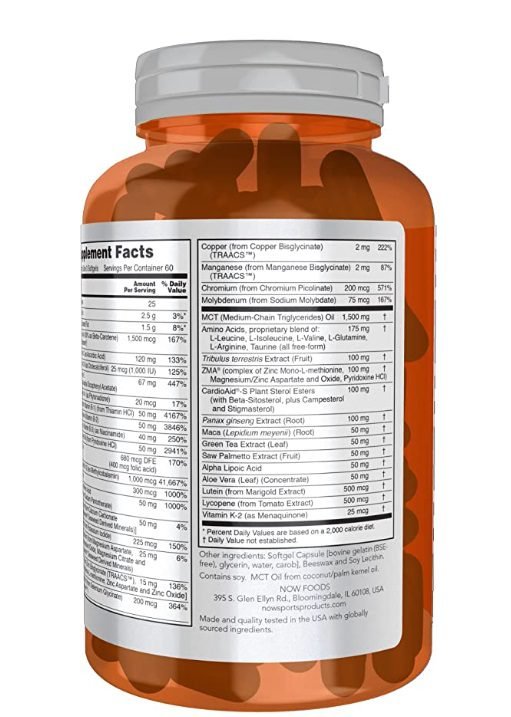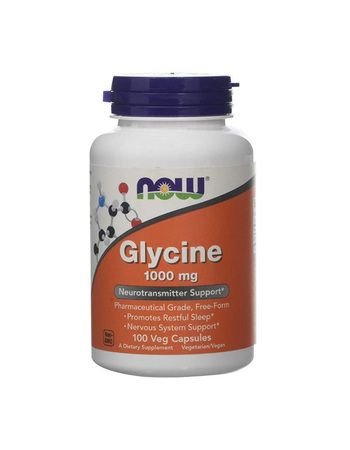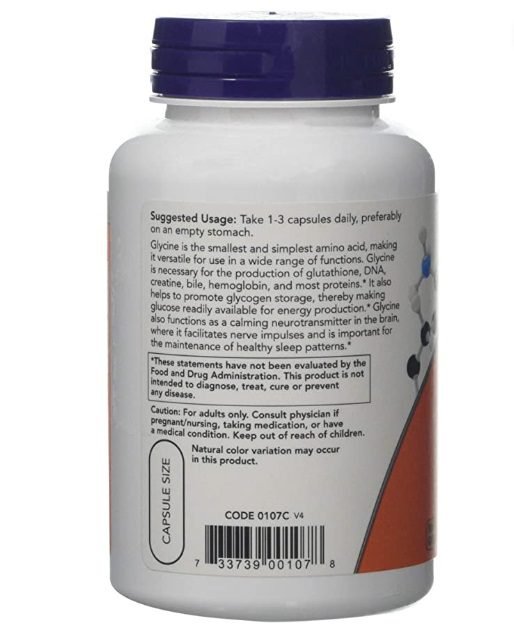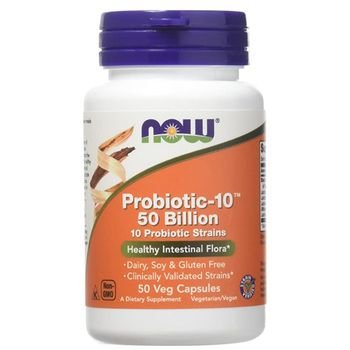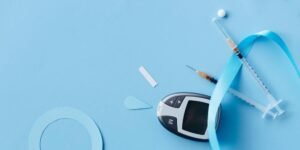
Grain Brain and Three Invisible Killers of the Brain II
Gluten – The Third Invisible Killer of the Brain
Grain Brain and the third invisible killer of the brain is gluten. The word Gluten in English is derived from Latin and is related with the word “Glue”, a kind of sticky substance. Gluten is composed of two proteins, gliadin and glutelin, which stick together like glue. The so-called gluten allergy is the chance to be allergic to gliadin or glutelin. Severe gluten allergy can cause celiac disease. Some people who are intolerant to gluten may have a chance to cause Leaky Gut Syndrome.
The disease causes inflammation in the body and may trigger the immune system diseases.
Celiac disease can be the most serious disease caused by gluten allergy. In addition to inflammation of the intestinal tract, patients also have malnutrition. Before celiac disease was found to be caused by gluten allergy, severe patients may even die in the past. In 2008, some scholars found that celiac disease patients had symptoms of brain degeneration earlier than ordinary people, which is shown in Magnetic Resonance Imaging of their brain. Some cases of multiple sclerosis or a small stroke can be reversed just by eating a gluten-free diet. Many of their dementia symptoms can be significantly improved.
Many people don’t know that gluten is potentially addictive. After gluten is digested by the stomach, a series of peptides will be produced, which is gluten exorphins. These gluten exorphins can be transported through the bloodstream to our brains to stimulate morphine receptors, which will make people feel happy. It is also because of this reason that foods such as bagel, muffins, doughnuts, croissants, etc. have the opportunity to become addictive. In the book, Dr. Perlmutter shared many real cases of different diseases caused by gluten allergy.
Dr. Perlmutter had a female patient of age 63. She has severe migraines. She needs to take Imitrex for migraines. When she was 20 years old, she needed surgery because of severe intestinal pain. Dr. Perlmutter arranged a test for her and found out she had a severe gluten allergy. She has fully recovered from her migraines after four months on the gluten-free diet. She finally lives with a happy life where you don’t have to suffer from daily headaches.
Another patient of age 30, was suffering from bipolar disorder. Her father also has bipolar disorder, and her sister has schizophrenia. After testing, Dr. Perlmutter also found she has a gluten allergy. After two months of a gluten-free diet, her depression symptoms have improved significantly. She feels more energetic than before, and her mind is getting clearer. Her symptoms of obsessive-compulsive disorder have also been greatly reduced. Once she accidentally ate gluten, she immediately felt depressed the next day.
Another patient who is 23 years old. Six months ago, he started to experience some involuntary trembling. He consulted two neurologists one after another, and one of them thought he had a condition called Essential Tremor. He advised him to take a blood pressure lowering drug to control the symptoms. Another neurologist thought he had dystonia. He suggested he need to take Botox. He has done many tests, but found nothing. Finally, Dr. Perlmutter found he has a gluten allergy. After six months of a gluten-free diet, his symptoms completely disappear. .
There is also a 75-year-old retired engineer who has suffered from severe insomnia and depression for 40 years. He needs to take sleeping pills every night before he goes to bed. He also needs to take antidepressants and Viagra to deal with his erectile dysfunction. Dr. Perlmutter found he also had a gluten allergy. After taking the gluten-free diet, his depression symptoms improved greatly. He also no longer has erectile dysfunction. Dr. Perlmutter pointed out that those cases were just the tip of the iceberg. In fact, at that time, the medical field did not pay attention to the neurological diseases caused by gluten allergy. Except for adults, there are many children allergic to gluten who are often too late to find out.
There is a 4 year old boy. His mother is a physiotherapist. A teacher at his school told his mother that he seems unusually active at school. He suggested his mother take him for an assessment to check whether he has ADHD. Before his mother brought him to see Dr. Perlmutter, she took him to see a pediatrician. The doctor thought he had ADHD and gave him medicine. But his mother did not want him to take the medicine so quickly. Dr. Perlmutter reviewed his medical records and found his ears were often inflamed. He’s had countless courses of antibiotics. When Dr. Perlmutter first met him, he was on a six-month course of antibiotics. The purpose is to prevent his ear from getting another bacterial infection.
Dr. Perlmutter also found that he often suffered from joint pain and needed anti-inflammatory painkillers. When Dr. Perlmutter did a physical examination on him, he found he was breathing through his mouth, which meant there was chronic inflammation in his nasal cavity, which caused nasal congestion. He has obvious dark circles under his eyes, which means he has allergies. In addition, he is indeed active and restless. Dr. Perlmutter simply tested him for gliadin antibodies. He found his antibody index was three times higher than normal, proving he has the gluten allergy. The inflammation in his body was related to gluten allergy. After two and a half weeks of the gluten-free diet with some probiotics and DHA supplements, his symptoms improved significantly. After two and a half years, he became a gifted student. His reading ability and math comprehension ability are also good. He is also the youngest but tallest student in the class.
In addition to the above cases, Dr. Perlmutter also had a five year old girl patient. She was diagnosed with Tourette’s disease. Her mother found her neck muscles would twitch involuntarily, and then developed a facial and temporomandibular joint twitches. Her throat made some growling noises from time to time. In the first three years of these symptoms, she had frequent stomach pains and diarrhea. Dr. Perlmutter found out she was allergic to gluten. She just went on a gluten-free diet for two short days, and all her symptoms disappeared.
Dr. Perlmutter also shared another case of a patient. She is a nine-year-old girl suffering from hyperactivity and memory problems. Her symptoms are on and off. Dr. Perlmutter found that she has gluten allergy and DHA deficiency. Dr. Perlmutter suggested she take the gluten-free diet and 400 mg of DHA supplements daily. He advised her to stop drinking the soda with aspartame. After three months, her condition improved. Her academic performance was excellent.

The above cases are all real and are not isolated incidents. Back in 2006, a study showed that a six-month gluten-free diet can greatly improve the symptoms of hyperactivity disorder. As early as 1999, a study of 22 autistic children showed that a gluten-free diet was helpful for autism, but it needs to be implemented for at least three months before there will be obvious effects. Gluten allergies can also affect our mental health. Patients with celiac disease have an 80% higher risk of developing depression than the general population. People with gluten allergy have up to 52% of depressive symptoms. If a mother is gluten allergic, the risk of her children developing schizophrenia in the future is also greatly increased by nearly 50%. Researchers have found that mothers who are allergic to milk will not increase the risk of her children suffering from psychiatric diseases in the future.
A 2009 study reported a 70-year-old schizophrenic patient who had committed suicide many times. He improved a lot since going on a gluten-free ketogenic diet and no longer hallucinated. Dr. Perlmutter mentioned he had a patient with severe migraine, and he tried all the medicine for migraine, but it did not work. His sister also has a rare disorder called Stiff Person Syndrome. Dr. Perlmutter found out he has severe allergies to gluten and milk. Dr. Perlmutter advised him to go on a gluten-free diet and abstain from dairy products. After three months, his pain was reduced from nine to five. He also no longer needs to take painkillers. A 2012 study found that up to 50% of headache sufferers are allergic to gluten. Obesity also increases the risk of migraines. Overweight people also have a 40% higher risk of migraine than normal weight people. Obese people have a 70% higher risk of migraine than normal weight people.
Assessment of Grain Brain
Dr. Perlmutter pointed out that refined starch, sugar and gluten are the three major killers of modern human brains. These three killers are hidden in the grains we usually eat, which
will lead to grain brains in us. How do we first know if you have a grain brain? You can do a simple questionnaire. In the following 20 questions, you only need to answer yes or no.
| YES | NO | ||
| 1 | I eat bread (any type of bread) | ||
| 2 | I drink fruit juice (any type of juice | ||
| 3 | I eat fruit everyday | ||
| 4 | I chose agave syrup more than sugar powder | ||
| 5 | I get short of breath when I walk | ||
| 6 | My total cholesterol is below 3.88 mmol/L | ||
| 7 | I have diabetes | ||
| 8 | I am overweight | ||
| 9 | I eat rice or spaghetti (any type) | ||
| 10 | I drink milk | ||
| 11 | I do not exercise | ||
| 12 | I have a family history of neurological diseases | ||
| 13 | I do not take vitamin D supplements | ||
| 14 | I take a low-fat diet | ||
| 15 | I am taking I am taking cholesterol reduction medicine | ||
| 16 | I avoid eating a diet with high cholesterol | ||
| 17 | I drink soda water | ||
| 18 | I do not drink red and white wine | ||
| 19 | I drink beer | ||
| 20 | I eat grain breakfast |
Out of the 20 questions, if you tick yes more than 10, we suggested you need a detailed body check, as you have a high risk of grain brain. If you are below 10, it does not mean you have no risk. Your risk is just a bit lower. If a person has no risk, all his answers should be no. Dr. Perlmutter pointed out that to improve our brain health, we need to start from three ways, which are diet, exercise, and sleep. Dr. Perlmutter believes intermittent fasting for a period has many benefits for the brain. Many people misunderstand that the brain just burns glucose. In fact, the brain can use ketone bodies as a source of energy. During fasting, the body will produce ketone bodies in the process of burning fat for the brain to use. Many people who have tried the ketogenic diet find that they are more focused during fasting.
The fact that ketone bodies are:
-
- More efficient source of energy for the brain. It can also
- Increase BDNF in the brain,
- Increase brain detoxification ability.
- Both can increase mitochondrial replication and reduce inflammation
- Reduce cell apoptosis
Aerobic exercise can help us:
-
- Help us strengthen our memory
- The brain can get more nutrition.
- Reduce inflammation.
- Increase insulin sensitivity.
- Lower blood sugar and increase BDNF.
In a 2011 study, 120 elderly people were divided into two groups. A group of people just do a brisk walk. Another group of people do stretching. One year later, the researchers found that the volume of the part of the hippocampus responsible for memory in the brisk walking group increased. On the contrary, the volume of the hippocampus of the group doing stretching decreased. Another study found that an average of 20 minutes of daily exercise over 24 weeks. The exercises can improve our memory, language skills, concentration and other cognitive abilities by as much as 18 times. Exercise is proved to be of great help in improving the neuroplasticity of the brain. It is beneficial to do about 20 minutes of exercise every day, such as swimming, cycling, hiking, etc. If you can do it at least five times a week, you can already greatly improve your brain health.
Dr. Perlmutter has a patient who is a 48-year-old stockbroker. His son is allergic to gluten and his work pressure is high. He has been diagnosed with Hashimoto’s thyroiditis. Hypothyroidism caused him to take thyroid supplements. Dr. Perlmutter found that he is also allergic to gluten as his son. After four months on the gluten-free diet, he slowly turned from a pessimistic and negative person to an optimistic and positive person. He sleeps soundly every night, and every day he is full of energy. Sleep is important for brain health. In 2013, a British study found that only one week of sleep deprivation can affect the function of 711 genes in our body, including some genes that control stress, inflammation, resistance and metabolism. These factors indirectly affect the health of our brains. Studies have also shown that if the elderly suffer from long-term insomnia, the risk of developing dementia is twice as high as a normal person. Lack of sleep is also harmful to the body’s hormones, which lead to lack of leptin and increase our hunger. Refined starch not only stimulates the pancreas to secrete insulin, but also creates insulin resistance in the long run. In fact, it will also stimulate our fat cells to secrete leptin. In the long run, it will formulate leptin resistance. The study found that if a person’s blood triglycerides are higher, their leptin resistance will be more serious.
There is a book “Why We Eat Too Much?” published in 2020 by Dr. Andrew Jenkinson. The content of the book is all about how leptin affects our appetite. How do we know if we have leptin resistance after reading this book? Then you can observe whether you have the following situation:
-
- Overweight,
- Central obesity,
- Have tried many methods, including exercises, but can’t lose weight.
- Frequent cravings for happy foods or snacks
- Have food coma after meal
- Often tense or stressed out
- Often feel hungry
- Frequent craving for snacks between meals
- High triglycerides
- Osteoporosis
- Poor sleep quality
- High blood pressure
- Frequent take caffeinated drinks
Treatment For Grain Brain
Having said so much, we believe you should probably know what Dr. Perlmutter is referred to as a grain brain. If you suspect you have a “Grain Brain”, then you must pay attention to the last paragraph of the article. Dr. Perlmutter has suggested a few treatments for “Grain Brain”. How to dramatically improve your brain health in four weeks:
-
- First week, you need to focus on improving your diet
- Second week, you need exercises.
- Third week, you need to focus on improving your sleep
- Fourth week, you will practice what you have learned in the first three weeks.
Blood Test Before Treatment
At that time, you can feel the benefits of diet, exercise, and sleep for your brain. Before starting the course of treatment, some basic blood tests are actually required. What is included? They are fasting blood sugar test, fasting insulin tests, glycosylated hemoglobin test, fructosamine test, homocysteine test, vitamin D test, C-reactive protein test, which is inflammation index, gluten allergy index. General family doctors can help you arrange. But if you want to be tested for gluten allergy, you need to find a specialist to help you arrange. Dr. Perlmutter recommends a blood test before starting the course of treatment, and four weeks after treatment, so you can see exactly how you are progressing. Fasting blood glucose, fasting insulin, HbA1c and fructosamine tests are used to assess whether a person has diabetes and insulin resistance. The HbA1c test is a reflection of a person’s blood sugar control over the past three months. Fructosamine test is a reflection of a person’s blood sugar control over the past two to three weeks. The course of treatment offered by Dr. Perlmutter is a four-week course. Glycosylated hemoglobin may not immediately reflect changes in blood sugar, and Dr. Perlmutter suggested us to do the fructosamine test. Cysteine is bad for the brain, and Dr. Perlmutter suggests it is best to control it below eight units. If cysteine is too high, Dr. Perlmutter recommends a daily supplement of vitamin B6 50 mg, folic acid 800 micrograms and vitamin B12 500 micrograms. Then try all the tests again in three months.
Many people also have vitamin D deficiency. Dr. Perlmutter recommends that the level of vitamin D should be at least 80 nanograms/ml. Dr. Perlmutter recommends supplementing 5,000 IU of vitamin B3 daily and retesting after two months. Then adjust the dosage of supplements according to the research report. If you have grain brain problems, Dr. Perlmutter provides six health supplements in the book, including Alpha Lipoic Acid, Probiotics, Resveratrol, Curcumin, Vitamin D. In addition to the above health products, Dr. Perlmutter also recommends one tablespoon of coconut oil daily. You can add it to your black coffee or add it to your food while cooking.
First Week of Grain Brain Treatment
In the first week of treatment, we focus on improving our diet. Dr. Perlmutter’s dietary advice is actually a gluten-free, no added sugar, and no refined starch, low-carb, high-fat diet. Dr. Perlmutter suggests there is no need to count calories or avoid fat. There is no need to control food intake, but you need to limit your daily carbohydrate intake to 30 to 40 grams. Something like a ketogenic diet. Dr. Perlmutter recommends completely cutting out all whole grain breads, grain noodles, pasta, pastries, some baked goods and breakfast cereals. We need to avoid processed food, such as biscuits, cookies, muffins, pizza, doughnuts or some sugary snacks and sauces. Also, we need to cut off all types of sugar, whether white sugar or brown sugar, some energy bars, ice cream, frozen yogurt, sorbet, jam, jelly, tomato sauce, cheese sauce, fruit juice, dried fruit, sports drinks, soft drinks, syrup, maple syrup, etc. Concerning oil, avoid using some margarine, vegetable oil, ghee, soybean oil, corn oil, rapeseed oil, peanut oil, safflower oil, grape seed oil, sunflower oil, rice bran oil, and wheat germ oil etc. Even if the above are organic, Dr. Perlmutter does not recommend using. On the other hand, foods containing soy protein such as tofu, soybean milk, soy vegan meat, should be avoided. If you want to buy soybean sauce, you better buy gluten free soybean sauce. There are many foods that are declared gluten free, but in many cases, corn starch, corn flour, and rice starch are added. These are refined starches that stimulate insulin secretion. In addition, there are many cosmetics, shampoos, conditioners, and hair care products that may contain gluten. At present, there are some gluten-free personal care products on the market that we can choose from.
After reading, you will realize that many things are not edible, because gluten, refined starches, sugar and processed foods are everywhere. It’s all for the same reason that many people actually have grain brains in real life. If you want to quit eating so many foods, what can you eat? Dr. Perlmutter recommends focusing on five categories of food as follow:
-
- Good Quality Fat
Virgin olive oil, sesame oil, coconut oil, grass-fed beef fat, and organically-formed grass-fed butter are all edible. Some unsweetened almond milk, avocado, coconut, olive, nuts, nut butter, cheese, except stone blue cheese and seeds, flax seeds, sunflower seeds, pumpkin seeds, sesame seeds are actually edible. - Good Quality Protein
Including eggs (remember to eat egg yolks), some wild fish such as salmon, black cod, grouper, herring, golden trout, sardines, etc. Some seafood, such as shellfish, shrimp crab, lobster, mussels, grass-fed cattle, some poultry, such as pork,poultry can be eaten, and beans can be eaten in moderation. - Vegetable
There are no special restrictions on some non-starchy vegetables, that is, vegetables that grow above the soil. Green leafy vegetables, sweet peppers, cucumbers, tomatoes, jade melons, pumpkins, eggplant, etc. can be eaten. Starchy vegetables grow under the soil, such as carrots and white radishes can be eaten. Gluten-free carbohydrates such as buckwheat, brown rice, and quinoa can be eaten. - Low fructose fruits
For example, avocados, lemons, limes and berries are edible. If you want to drink alcohol, the author suggests you can drink 150ml red wine every day. Other alcohol, especially beer, is not suitable. About sugar substitutes, stevia and monk fruit sugar is edible.
- Good Quality Fat

Occasionally eating some dark chocolate with a concentration of 70% or above is fine. In addition to the low-carb, high-fat diet, Dr. Perlmutter encourages readers to do fasting. For every year, Dr. Perlmutter suggests we have long fasting periods by the end of March, June, September and December, because those periods have seasonal change.
Second Week of Grain Brain Treatment
In the second week, the author suggests adding some exercise. At least 20 minutes of aerobic exercise every day to exercise our cardiopulmonary function. The purpose is to increase our heart rate by 5%, and it is best to sweat. If you have problems such as joint pain, walking for 20 minutes a day is a good start. If you want to achieve the greatest effect, you can find a professional trainer to help you arrange a set of exercise therapy that combines cardiopulmonary strength training and stretching. Dr. Perlmutter understands that not everyone can easily find extra time for exercise. He suggested that exercise can be integrated into daily life. For example, while watching TV at night, you can do pull-ups at the same time. Reduce sitting time, you can actually walk around when talking on the phone.
Third Week of Grain Brain Treatment
On the third week, Dr. Perlmutter suggests focusing on improving sleep. The goal is to get at least seven hours of sleep a day. Dr. Perlmutter suggests eight tip to improve sleep.
-
- We need to learn about sleep patterns. It is best to go to bed at about the same time every day and get up at about the same time. So as to form an invisible habit. Take a shower and brush your teeth at ten o’clock every night. If you feel sleepy, turn off the light and go to sleep immediately, don’t look at your phone.
- We need to avoid exposure to caffeine and nicotine before going to bed. Both are irritating to the stomach and brain. Drinking too much coffee or tea and smoking will affect our sleep. Dr. Perlmutter suggests that it is best not to drink caffeinated drinks after two o’clock in the afternoon. Although alcohol will have some immediate sedative effect, in the process of metabolizing alcohol, it actually stimulates your adrenal glands to secrete adrenaline, and also reduces our serotonin. In fact, just the opposite, it will affect our sleep. Hence, please do not drink before sleep.
- There must be at least three hours between dinner and bedtime. This is also why many people who eat at night will find that their sleep quality will be relatively poor.
- We must eat regularly at the same time. We have all said that some people with excessive stress hormones are not suitable for long fasting. Because fasting will cause cortisol and adrenaline to rise, this will affect our sleep.
- We need to pay attention to whether the blood sugar is too low at night. Especially diabetic patients who are taking diabetes medication or taking insulin injections.
- We need to be careful with foods that contain artificial colors and flavors. Food additives have a chance to stimulate our brains. It is also one of the reasons why we have been emphasizing the need to avoid processed foods.
- We need to create a quiet and dark sleeping environment. Then a comfortable bed is also very important. It is okay to wear eye masks or earplugs when needed.
- It is about sleeping pills. Even some drugs that claim to be non-addictive, Dr. Perlmutter suggests that it is best not to use them unless necessary.
Many of the health supplements suggested by Dr. Perlmutter can actually help us improve our sleep. Dr. Perlmutter specifically mentions that many people use an 80:20 rule to regulate themselves. That is, 80% of the time to strictly abide by the diet control. 20% reserved for occasional indulgence. Dr. Perlmutter believes that these bad eating habits are actually very easy to become a habit again. Dr. Perlmutter suggests using the 90:10 rule, that is 90% of the time strictly abide by the rule of diet control. 10% reserved for occasional indulgence.
Do you remember the book “The Kegan Diet”? The author also suggests that you set aside 10% of the top level of the food pyramid as the so-called happy food for the occasional eating. Dr. Perlmutter and the author of “The Kegan Diet” both agree that the definition of an occasional indulgence is 10%.
The Above Article is the Continue of “Grain Brain and Three Invisible Killers of the Brain I “
Supplement For Diabetes
-
1. Promote methyl transfer
2. Promote the development and maturation of red blood cells, keep the body’s hematopoietic function in a normal state, prevent pernicious anemia; maintain the health of the nervous system
3. In the form of coenzyme, it can increase the utilization rate of folic acid and promote the metabolism of carbohydrates, fats and proteins
4. It has the function of activating amino acids and promotes the biosynthesis of nucleic acids, which can promote the synthesis of proteins, which plays an important role in the growth and development of infants and young children.
5. Metabolize fatty acids so that fats, carbohydrates, and proteins are properly used by the body
6. Eliminate irritability, concentrate, enhance memory and balance
7. It is an indispensable vitamin for the healthy functioning of the nervous system and participates in the formation of a lipoprotein in the nervous tissue
-
Benefit of Beef Gelatin
- Collagen and gelatin contribute to the infrastructure of connective tissue throughout. Regular consumption of these proteins helps repair and care for the intestines, skin, hair, tendons, cartilage, bones and joints.
- Supports joint health, comfort and mobility.
- Supports gut health and digestion due to the role of amino acids in promoting the integrity of the gut lining
- Boost muscle mass
- Reduce hunger
- Supports bone health
- Assist with blood sugar control
- Supports cognitive functions, including memory and learning
- Helps Athletic Performance and Recovery
- Helps maintain healthy, youthful skin
- Promotes healthy hair and strong nails
- Promote quality sleep








